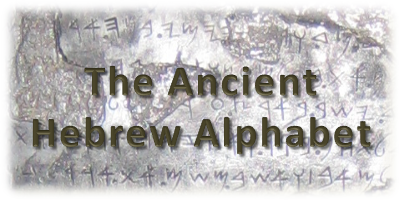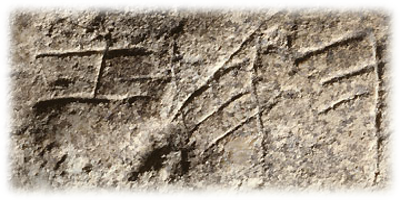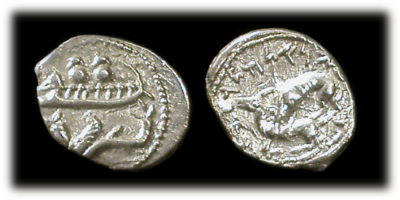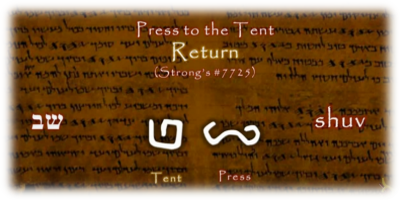|
| Ancient Name: | Kaph |
| Pictograph: | Open Palm |
| Meanings: | Bend, Open, Allow, Tame |
| Sound: | K (stop), Kh (spirant) |
History & Reconstruction
The Ancient form of this letter is  the open palm of a hand. The meanings of this letter are "bend" and "curve," from the shape of the palm, as well as to "tame" or "subdue" as one who has been bent to another's will.
the open palm of a hand. The meanings of this letter are "bend" and "curve," from the shape of the palm, as well as to "tame" or "subdue" as one who has been bent to another's will.
The Modern Hebrew name for this letter is kaph, a Hebrew word meaning "palm" and is also the ancient name for this letter. This letter is pronounced as a "k," as in the word kaph, when used as a stop or as a "kh" (pronounced hard like the "ch" in the German name Bach), as in the word yalakh (to walk) when used as a spirant.
The Early Semitic  evolved into
evolved into  in the Middle Semitic script. This letter continued to evolve into
in the Middle Semitic script. This letter continued to evolve into  in the Late Semitic script and becoming the Modern Hebrew כ and the ך (final kaph). The Middle Semitic
in the Late Semitic script and becoming the Modern Hebrew כ and the ך (final kaph). The Middle Semitic  became the Greek and Roman K (written in the reverse direction from the Hebrew).
became the Greek and Roman K (written in the reverse direction from the Hebrew).
Semitic Script Charts
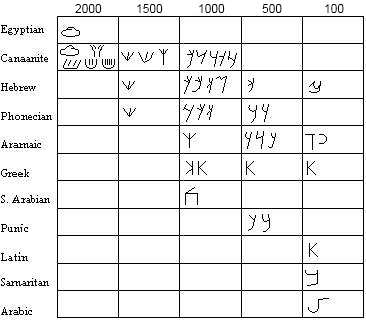
|
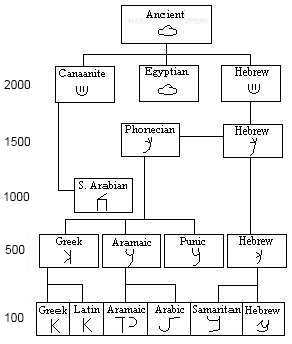
|

Like what you’re discovering? Continue the journey from Bible reader to translator.
|



